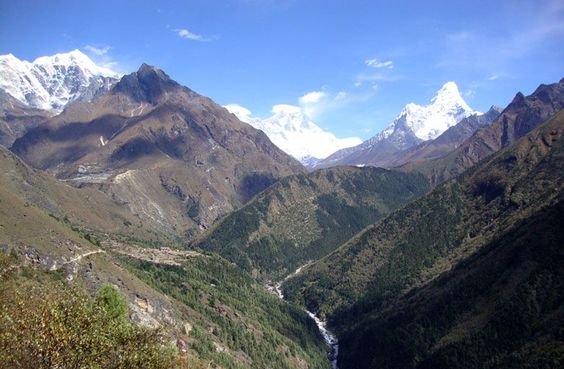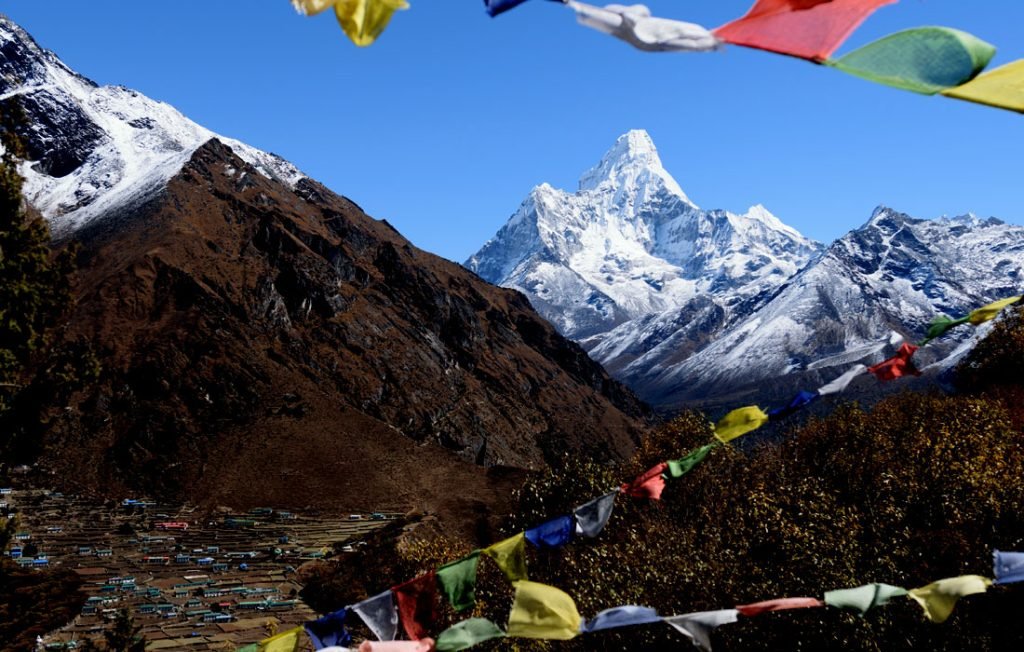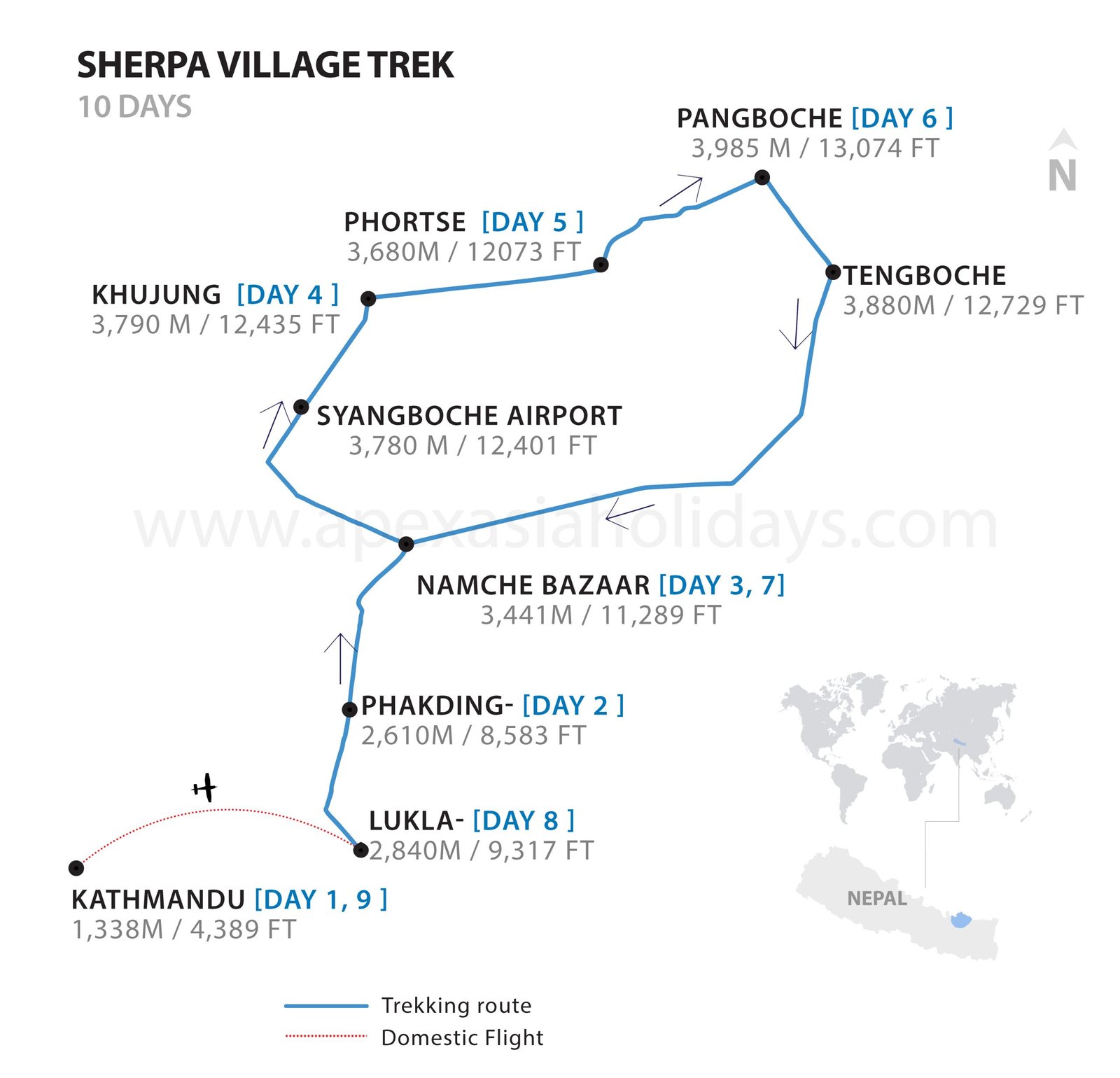The Sherpa people, renowned for their mountaineering prowess and warm hospitality, have long been an integral part of the Himalayan region. Nestled amidst the towering peaks of Nepal and Tibet, the Sherpa heritage is steeped in a rich tapestry of traditions, beliefs, and a deep connection with the mountains. This unique community’s resilience, resourcefulness, and unwavering spirit have made them indispensable companions for mountaineers and trekkers exploring the majestic Everest region. Understanding the Sherpa heritage provides insights into their remarkable history, cultural practices, and enduring contributions to the world of mountaineering.
The Sherpa people trace their origins back to the Tibetan region of Kham, from where they migrated to the Solu-Khumbu region of Nepal several centuries ago. As a predominantly agrarian society, the Sherpas developed a close bond with the mountains, cultivating a deep respect for their power and majesty. The mountains, particularly Everest and the surrounding peaks, hold profound spiritual significance in Sherpa culture. The Sherpas consider these mountains sacred, believing them to be the dwelling places of deities and ancestral spirits. This deep reverence for the mountains has fostered a unique connection between the Sherpas and the world of mountaineering, making them indispensable companions for adventurers and climbers seeking to conquer the Himalayan giants.
The Sherpas’ intimate knowledge of the mountains and their exceptional mountaineering skills have made them legendary figures in the world of climbing. Sherpa climbers have scaled the highest peaks, guided mountaineering expeditions, and set records that have rewritten mountaineering history. Their physical strength, endurance, and ability to navigate treacherous terrains have earned them immense respect from the global mountaineering community. Sherpas serve as guides, porters, and support staff, offering invaluable assistance to climbers aiming to conquer the world’s highest summits. Their selfless dedication and unwavering commitment have played a pivotal role in many successful ascents, making the Sherpas an indispensable part of Everest’s legacy.
The Sherpa heritage is characterized by a rich tapestry of cultural traditions and spiritual practices. Tibetan Buddhism has greatly influenced Sherpa culture, and monasteries and stupas dot the landscape of their villages. Colorful prayer flags flutter in the mountain breeze, carrying prayers and blessings to the heavens. Festivals like Losar (Tibetan New Year) and Dumji showcase Sherpa music, dance, and religious rituals, providing a glimpse into their vibrant cultural celebrations. The Sherpas’ spiritual practices, including meditation and chanting, reflect their deep-rooted beliefs in compassion, wisdom, and harmony with nature. These traditions form the bedrock of Sherpa identity and contribute to the tranquility and serenity of the Himalayan region.
Enduring Hospitality and Community Spirit Sherpas are renowned for their warm hospitality and close-knit community spirit. Trekkers and climbers are welcomed into Sherpa homes, where they experience the genuine warmth and kindness that the Sherpa people are known for. Sherpa tea houses provide comfort, nourishment, and camaraderie along the trekking routes, creating a sense of home away from home. The Sherpa community’s generosity and willingness to share their knowledge and stories contribute to the cultural immersion and lifelong connections forged between visitors and the Sherpa people
Trekking in Everest region
Group size of the Trek
Minimum one person
Maximum 12 person
Trek features :
- Rear Sherpa cultural heritage site
- spectacular mountain views of Everest ranges
- Many types of orchids, flora & fauna
- Glimpse of Everest
- History of climbing hero’s
Grade : Medium / Hard
Elevation: Max.3860Meters. (TengBoche )
Accommodation : Tea House/ Tent based
Food: Continental
Equipment List
The requirement of equipment is diffrent for each trek. these are common requirment of personnel things for most of our treks. Please feel free to ask for advice we will provide you the best suggestion.
Clothing and Equipment Check List
- Pair of T-shirts and half pants
- Fleece jacket and warm Trousers
- Raincoats & water proof pants
- Down jacket
- Thermal underwear
- Windproof jacket
- Fleece/wool warm hat
- Baseball hat or sun hat
- Snow & sun glasses
- Fleece gloves
- Socks – 3/4 pairs
- Socks- woolen
- Trekking shoes
- Ligh sport shoes
- Small rucksack for daypack
- Waterbottle (metal )
- Kit Bag medium size
- Trekking poles (optional)
- Sleeping bag down ( -5-10 degree)
- Flash light & batteries
Personal things
- Small kit bag (valuable things can put inside , pocket knife )
- Sun Cream & lip care cream
- Moist towels for personal hygiene
Sherpa Heritage Itinerary
Outline itinerary (9 Days trek)
Day 1: Ariival in kathmandu (1350m.) airport ,Pick up then transfer to Hotel.
Day 2: Full day Sight seeing in Kathmandu valley & Trekking preparation.
Trek Start
Day 3: Flight to Lukla Airport then trek to Phakding (2623m.) , gradual up, 4 hours.
Day 4: Trek to Namche Bazaar (3440m.) Steep up, 6hrs.
Day 5: Rest day for acclimatization, sight seeing
Day 6: Trek to Thame(3800m.), gradual up & explore the Thame monastery, 5-6hrs.
Day 7: Trek to Khumjung (3790m.), visit Sherpa village, 5-6hrs.
Day 8: Trek to Tengboche (3860m.) steep downs & ups & visit Tangboche Monastery, 4 hrs.
Day 9: Trek to Monjo (2820m.) , steep downs & ups, 6hrs.
Day10: Trek to Lukla (2860m.), flat & ups-downs, 4 hrs.
Day 11: Flight to Kathmandu (1350m.) then transfer to the Hotel
Trek end
Day 12: Rest , shopping & farewell dinner in Nepali restaurant.
Day 13: Fly out to the destination or Visit Pokhara & Chitwan (Really famous for crystal lake with panorama mountain views , Jungle safari & many more)









